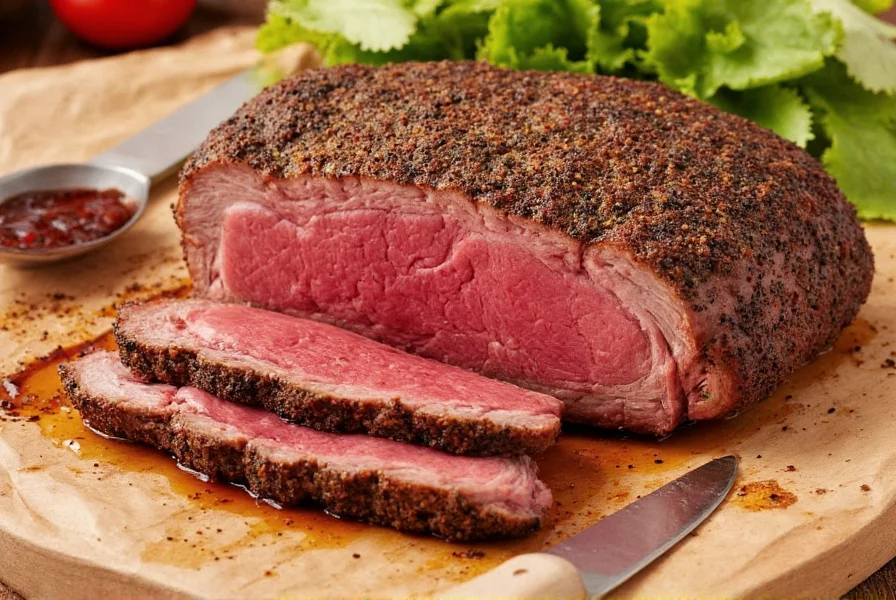
The best seasoning for chuck roast transforms tough cuts into tender, flavorful meals. This guide details the top 7 proven blends, how to apply them, and expert tips for perfect results every time. Whether you're slow-cooking, smoking, or using an Instant Pot, the right spices unlock the meat's full potential.
Top 7 Seasoning Blends for Chuck Roast
| Blend Name | Main Ingredients | Flavor Profile | Best For |
|---|---|---|---|
| Texas Smokey Rub | Paprika, smoked paprika, brown sugar, chili powder, garlic powder, onion powder, black pepper | Smoky-sweet with a hint of spice | Smoked chuck roast, oven roasts, or BBQ-style dishes |
| French Herb Medley | Thyme, rosemary, oregano, marjoram, parsley, garlic powder | Earthy and fragrant | Braised pot roasts, stews, French-inspired meals |
| Asian Fusion Blend | Ginger powder, sesame seeds, soy powder, five-spice, garlic powder, pepper | Savory-sweet with umami depth | Asian-style pot roasts, slow cooker recipes |
| Classic Comfort Rub | Salt, pepper, garlic, onion, mustard powder, thyme | Simple and savory | Weeknight dinners, family favorites |
| Latin Fire Rub | Chili powder, cumin, coriander, smoked paprika, garlic, oregano | Spicy, earthy, bold | Barbacoa-style roasts, tacos, enchiladas |
| Italian Comfort Mix | Oregano, basil, garlic, fennel, black pepper, Parmesan flakes | Herby and slightly nutty | Meat sauces, pasta fillings, Italian-style roasts |
| Umami Bomb Dust | Mushroom powder, miso powder, soy powder, garlic, onion, black pepper | Deep, rich, umami explosion | Fusion dishes, gourmet roasts, hearty soups |
Why Seasoning Matters for Chuck Roast
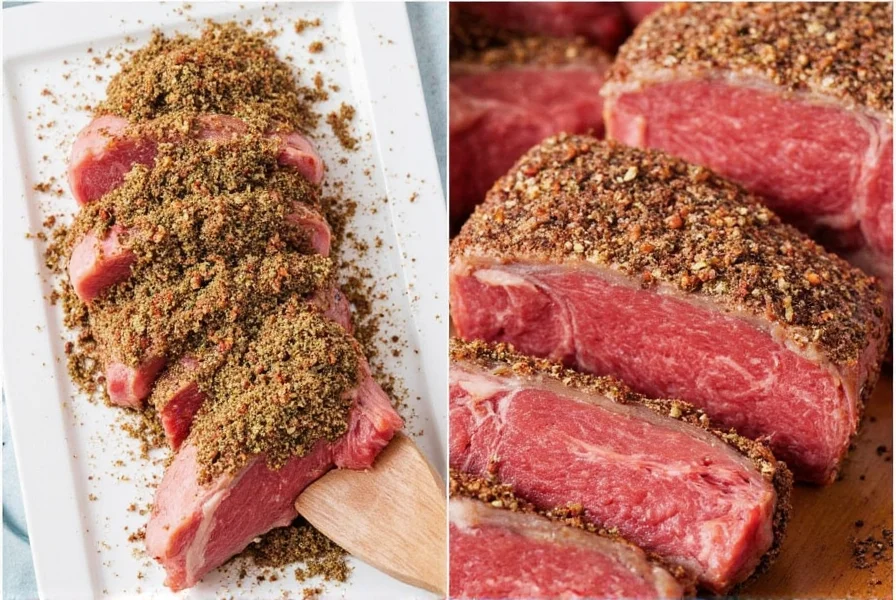
Chuck roast comes from the shoulder area of the cow — it's full of connective tissue and muscle fibers that break down during slow cooking. That means when cooked properly, it becomes tender and rich with flavor. But here's the kicker: that deep flavor needs help unlocking. That's where seasoning steps in.
Seasoning isn't just about adding salt. It's about layering flavors that enhance the beef's natural richness, balance its fattiness, and elevate every bite from bland to bold. From earthy herbs to spicy kickers, the perfect blend depends on your taste preferences, cooking method, and what kind of vibe you want on your plate.
The Science Behind Flavor Layers
When we season meat, especially something like chuck roast that takes time to cook, we're not just coating it — we're infusing it. The heat breaks down both the meat and the spices, allowing volatile compounds to mingle and deepen over time. That's why a great seasoning blend should:
- Include aromatic bases (like garlic, onion, or celery seed)
- Have a mix of sweet, savory, spicy, and umami elements
- Complement rather than overpower the beef
How to Use These Seasonings Like a Pro

You wouldn't paint a masterpiece without prepping the canvas, would you? Same goes for seasoning a chuck roast. Here's how to apply your chosen blend like a seasoned pro:
- Dry the Surface: Pat your roast dry with paper towels. Moisture prevents the spices from adhering properly.
- Rub Generously: Don't be shy! Massage the seasoning into all sides, making sure to get under any flaps or folds.
- Rest Time: Let the roast sit at room temperature for 20-30 minutes after seasoning. This helps the spices penetrate deeper.
- Build Layers: For extra flavor, add a secondary seasoning halfway through cooking. Think bay leaves, peppercorns, or citrus zest in the cooking liquid.
- Taste Test: If using a slow cooker, check for seasoning balance near the end of cooking and adjust accordingly.
Cooking Methods & How They Impact Seasoning
| Cooking Method | Impact on Seasoning | Recommended Blend |
|---|---|---|
| Oven Roasting | Concentrates flavors; requires bolder blends | Texas Smokey Rub |
| Slow Cooker | Needs longer infusion; benefits from balanced blends | Classic Comfort Rub or Asian Fusion |
| Braising | Liquid-based; works best with aromatic blends | French Herb Medley |
| Instant Pot | Quick infusion; avoid overly strong spices | Italian Comfort Mix or Latin Fire |
| Smoking | Enhances smoky flavors; pair with sweet or spicy | Texas Smokey Rub or Umami Bomb |
Buying Guide: Choosing the Best Pre-Made Blends
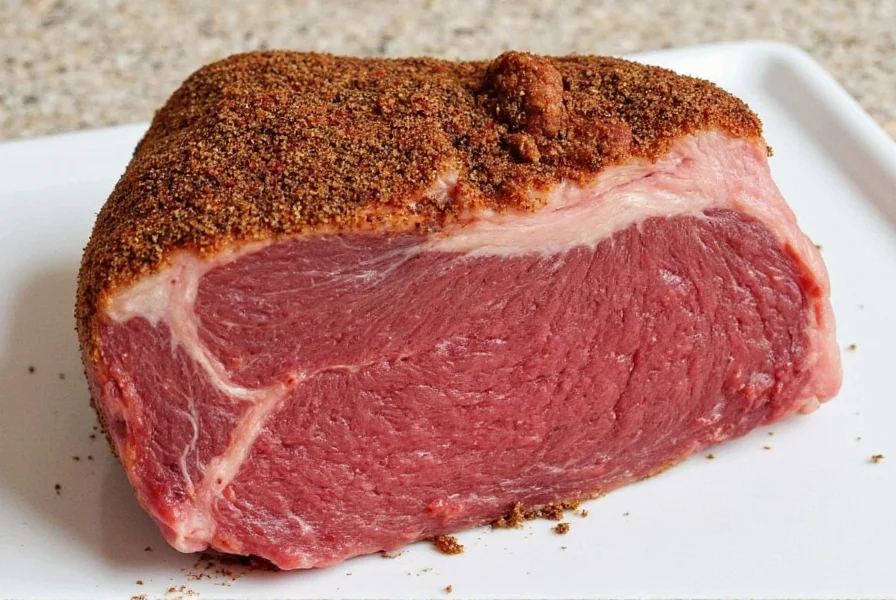
Not everyone has the time (or patience) to mix their own spice blends. That's totally fine! Here's a guide to selecting the best store-bought seasoning for chuck roast, along with product highlights:
What to Look For
- Natural Ingredients: Avoid artificial additives, preservatives, or fillers like maltodextrin.
- Balanced Flavor: Shouldn't be too salty, too spicy, or too bland.
- Clear Labeling: Know what you're getting — no mystery ingredients.
- Reputable Brand: Stick to trusted spice companies or read reviews carefully.
Top Picks for Pre-Made Seasonings
| Product | Key Features | Pros | Cons | Best For |
|---|---|---|---|---|
| Weber Chicago Steakhouse Rub | Smoky, savory, and slightly sweet | Perfect for grilling and roasting; generous bag size; contains sugar | Can be too salty for some | Beef lovers and outdoor cooks |
| Penzeys Beef Stew Seasoning | Rich, classic flavor with celery seed and onion | Excellent for stews and slow cooking; high-quality ingredients | Pricier than average | Home cooks and stew fans |
| McCormick Grill Mates Montreal Steak Seasoning | Peppery, garlicky, and robust | Versatile and affordable; widely available | Can be too salty | Grilled roasts and steaks |
| Trader Joe's Everything But the Elote Seasoning | Corn-forward with chili and lime notes | Unique and fun; great for tacos and Latin flair | Less traditional for roasts | Experimental cooks and taco nights |
| Lawry's Seasoned Salt | Basic and balanced | Classic, household name; good all-around use | Can be too salty | Everyday cooking and beginners |
Frequently Asked Questions
Can I use steak seasoning for chuck roast?
Yes! Steak seasonings work well for chuck roast, especially if they contain garlic, pepper, and onion. However, you may want to supplement with additional herbs or sugars depending on the cooking method.
Should I marinate my chuck roast before seasoning?
Marinating adds moisture and flavor, but it's not always necessary. For chuck roast, a dry rub often does the job better by forming a flavorful crust during cooking.
Is there a universal seasoning that works for most roasts?
The closest thing is a simple mix of salt, pepper, garlic powder, and onion powder. From there, customize based on cuisine or occasion.
How long should I let seasoning sit on a roast?
Letting it rest for 20-30 minutes allows the spices to penetrate. For even deeper flavor, refrigerate overnight covered.
Can I freeze seasoned chuck roast?
Absolutely! Season first, then wrap tightly and freeze. Thaw and cook as usual — the flavors will meld beautifully during thawing.
How much seasoning should I use per pound of chuck roast?
As a general rule, use about 1 tablespoon of seasoning blend per pound of meat. For a standard 3-4 pound chuck roast, that's approximately 3-4 tablespoons total. Make sure to coat all surfaces evenly for consistent flavor.
Do these seasoning blends work for other cuts of beef?
Absolutely! While these blends are optimized for chuck roast's characteristics, they work well with other tougher cuts like brisket, short ribs, and round roast. For more tender cuts like ribeye or filet mignon, you might want to use slightly less seasoning as these cuts have more delicate flavors.
Can I make these seasoning blends ahead of time?
Yes! Most dry seasoning blends can be made in larger batches and stored in airtight containers for 6-12 months. Keep them in a cool, dark place to preserve flavor. Just be sure to label your containers with the blend name and date made for best results.
Final Thoughts
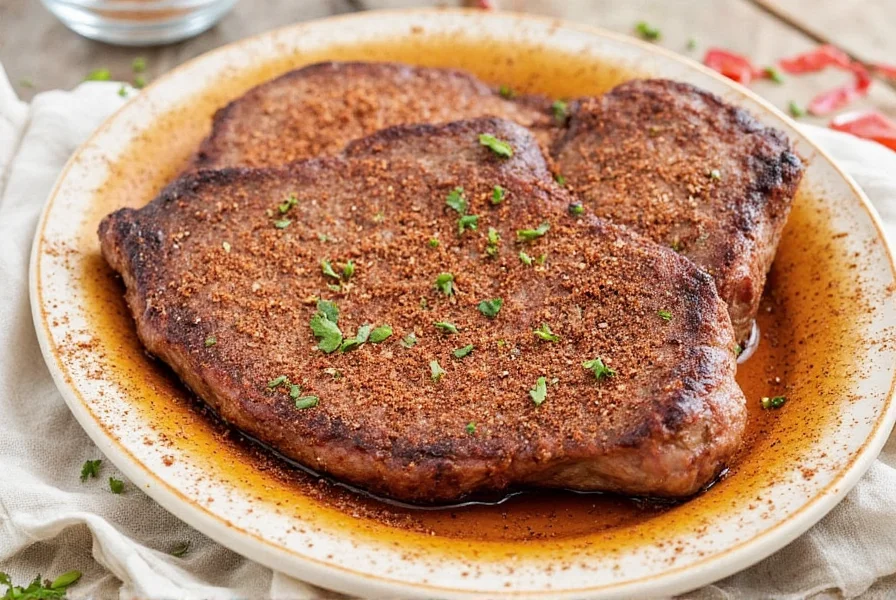
Choosing the right seasoning for chuck roast transforms ordinary meals into extraordinary experiences. Whether you prefer smoky barbecue, delicate herbs, or fiery Latin flavors, the perfect blend is just a rub away. Remember: start with quality ingredients, match the blend to your cooking method, and don't be afraid to experiment. Your next chuck roast dinner is waiting to become a family favorite!

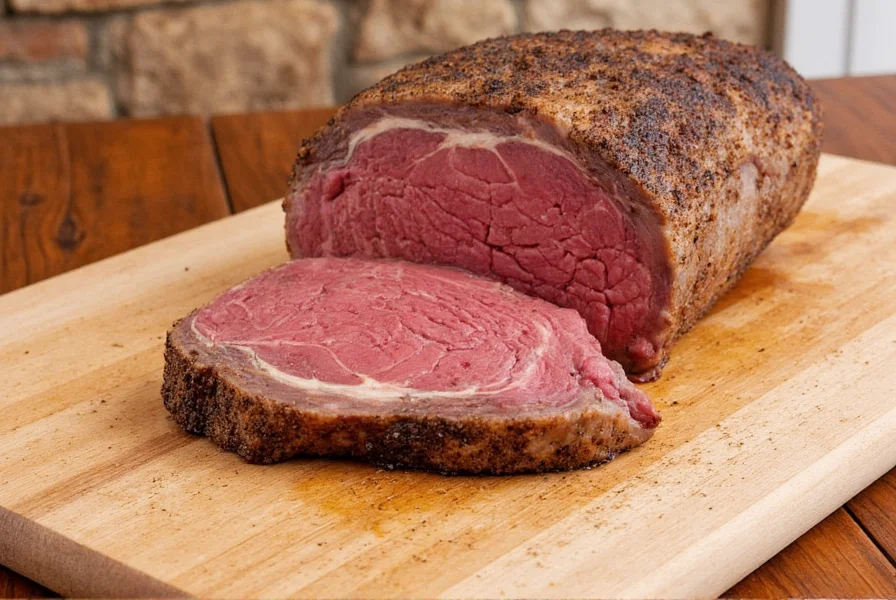









 浙公网安备
33010002000092号
浙公网安备
33010002000092号 浙B2-20120091-4
浙B2-20120091-4